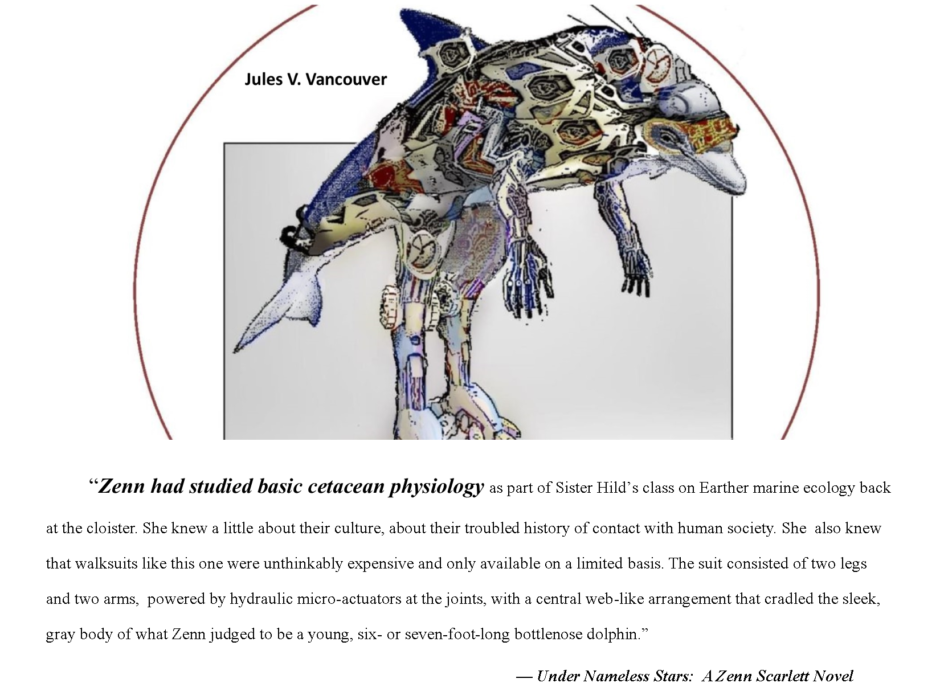 Since I decided early on in the writing process to tag my book’s heroine Zenn as an exoveterinarian (as opposed to a xenovet), I was musing about this topic long ago in another post, but didn’t see the entry below from Wikipedia. Turns out xenobiology, at least as technically defined by scientists, deals exclusively with lab-designed Earthly life forms. And, while I made my initial exovet decision on the basis of NASA’s hiring exobiologists (not xeno…) and just extrapolated, this wiki entry makes me glad I didn’t go the other way. And no, I never considered astrovet; too retro.
Since I decided early on in the writing process to tag my book’s heroine Zenn as an exoveterinarian (as opposed to a xenovet), I was musing about this topic long ago in another post, but didn’t see the entry below from Wikipedia. Turns out xenobiology, at least as technically defined by scientists, deals exclusively with lab-designed Earthly life forms. And, while I made my initial exovet decision on the basis of NASA’s hiring exobiologists (not xeno…) and just extrapolated, this wiki entry makes me glad I didn’t go the other way. And no, I never considered astrovet; too retro.
The wiki sez:
Difference between xeno-, exo-, and astro-biology
Astro means star and exo means outside. Both exo- and astrobiology deal with the search for naturally evolved life in the Universe, mostly on other planets in Goldilocks zones. Whereas astrobiologists are concerned with the detection and analysis of (hypothetically) existing life elsewhere in the Universe, xenobiology attempts to design forms of life with a different biochemistry or different genetic code on planet Earth.[4]
Not to be confused with Astrobiology.
Xenobiology (XB) is a subfield of synthetic biology, the study of synthesizing and manipulating biological devices and systems. Xenobiology derives from the term xenos (Greek) and means “stranger, guest”. So XB describes a form of biology that is not (yet) familiar to science and is not found in nature. In practice it describes novel biological systems and biochemistries that differ from the canonial DNA–RNA-20 amino acid system (see the classical central dogma in molecular biology). For example, instead of DNA or RNA, XB explores nucleic acid analogues, termed Xeno Nucleic Acid (XNA) as information carriers.[1] It also focuses on an expanded genetic code [2] and the incorporation of non-proteinogenic amino acids into proteins.[3]
Ref: Schmidt M. Xenobiology: a new form of life as the ultimate biosafety tool Bioessays Vol 32(4):322-331
